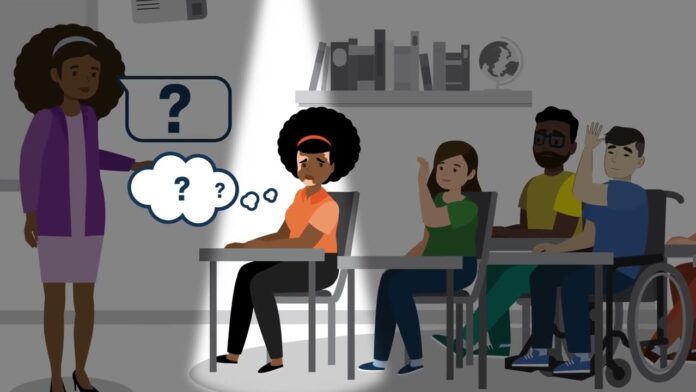In today’s society, diversity and inclusion are highly valued and promoted. This applies not only to the workplace but also to the education system. As educators, it is our responsibility to ensure that all students, regardless of their differences, are given equal opportunities to learn and grow. This is where inclusive education practices come into play.
Inclusive education refers to the practice of providing education to students with special needs alongside their non-disabled peers in a mainstream setting. This approach aims to create an environment where every student feels welcomed, respected, and valued for their unique qualities. Inclusive education recognizes that each student has different needs and abilities and seeks to meet those needs through appropriate accommodations and support.
Implementing inclusive education practices may seem daunting at first, but the benefits far outweigh the challenges. In this article, we will explore the importance of inclusive education, its benefits, challenges, strategies for implementation, and success stories.
Importance of Inclusive Education
Inclusive education is crucial for creating a diverse and equitable society. It teaches students the value of accepting and appreciating differences, promoting empathy and understanding. Moreover, inclusive education can have a significant impact on the academic and social development of students with special needs.
Promotes Social Integration
Inclusive education allows students with special needs to be part of the same learning environment as their peers without disabilities. This creates opportunities for social interaction and promotes the development of meaningful relationships between individuals from diverse backgrounds. It breaks down barriers and fosters a sense of belonging for all students.
Encourages Academic Growth
Students with special needs often have individualized educational plans (IEPs) that outline their specific learning goals and accommodations. Inclusive education ensures that these students receive the necessary support and resources to achieve their full potential. It also helps teachers identify and address any gaps in learning, promoting academic growth for all students.
Prepares Students for the Real World
Inclusive education reflects the diversity of our society and prepares students for the real world. In the workforce, individuals with disabilities work alongside their non-disabled peers, and it is essential to create a learning environment that mirrors this reality. By exposing students to diversity and inclusion at an early age, they develop skills that are valuable in the workplace, such as adaptability, communication, and empathy.
Benefits of Inclusive Education

The benefits of inclusive education extend beyond the academic and social development of students. It also has a positive impact on teachers, parents, and society as a whole.
Benefits for Students
- Promotes a sense of belonging and acceptance
- Encourages empathy and understanding
- Provides opportunities for social interaction and friendship
- Increases self-confidence and self-esteem
- Fosters independence and self-advocacy skills
Benefits for Teachers
- Enhances professional growth and development
- Encourages collaboration and teamwork between teachers
- Allows for more opportunities to use differentiated instruction strategies
- Creates an inclusive classroom culture that benefits all students
- Develops a deeper understanding of individual student needs and abilities
Benefits for Parents
- Promotes a feeling of inclusivity and acceptance for their child
- Increases parental involvement and engagement
- Provides opportunities for networking with other parents and families
- Encourages parents to be advocates for their child’s education
Benefits for Society
- Fosters a more diverse and equitable society
- Reduces stigma and discrimination towards individuals with disabilities
- Creates a more accepting and inclusive community
- Prepares future generations to embrace diversity and promote inclusivity
Challenges of Inclusive Education

While the benefits of inclusive education are numerous, implementing it can come with its challenges. These challenges must be addressed to ensure the success of inclusive education practices.
Lack of Resources and Support
Implementing inclusive education requires adequate resources and support from school administrators, teachers, and parents. This includes additional funding for specialized equipment, professional development for teachers, and support staff to assist students with special needs.
Resistance to Change
Inclusive education challenges the traditional model of education, which can be met with resistance from some educators and parents. Some may argue that students with disabilities will slow down the learning process for their non-disabled peers. It is essential to educate and inform stakeholders about the benefits of inclusive education to overcome this challenge.
Limited Teacher Training and Knowledge
Teachers need specialized training to effectively implement inclusive education practices. Unfortunately, many teachers do not receive adequate training on how to teach students with special needs. This can lead to frustration and ineffective teaching methods, which can negatively impact the success of inclusive education.
Lack of Collaboration between Teachers and Parents
Inclusive education requires collaboration between teachers and parents to develop and implement IEPs and monitor student progress. However, this collaboration may be lacking in some cases, leading to a disconnect between what the student needs and what is being provided.
Strategies for Implementing Inclusive Education
Implementing inclusive education practices requires a collaborative effort from all stakeholders involved. Here are some strategies that can help schools and educators successfully implement inclusive education.
Professional Development for Teachers
Teachers need specialized training and ongoing professional development to effectively teach students with special needs. This can include courses on differentiated instruction, developing and implementing IEPs, and classroom management strategies.
Collaboration between Teachers and Parents
Collaboration between teachers and parents is crucial for the success of inclusive education. Regular communication and meetings should be held to discuss the student’s progress, any challenges, and necessary accommodations or modifications.
Creating an Inclusive Classroom Culture
Teachers must create an inclusive classroom culture where all students feel welcomed and accepted. This can be achieved by promoting empathy and understanding, celebrating diversity, and addressing any discriminatory behavior immediately.
Providing Appropriate Accommodations and Modifications
Students with special needs may require accommodations and modifications to access the curriculum. It is essential to provide these in a timely and consistent manner to ensure the student’s success.
Utilizing Assistive Technology
Assistive technology can be a valuable tool for students with disabilities. It enables them to access the curriculum and participate fully in classroom activities. Schools should invest in assistive technology and ensure that teachers are trained on how to use it effectively.
Success Stories of Inclusive Education
Over the years, many schools have successfully implemented inclusive education practices, resulting in positive outcomes for all students. Here are just a few success stories of inclusive education.
Clara Barton Elementary School
Clara Barton Elementary School in California has been recognized as a model for inclusive education practices. The school has a diverse student population, including students with physical, cognitive, and emotional disabilities. Through the implementation of inclusive education practices, the school has seen an increase in academic performance, decrease in disciplinary incidents, and a more positive school climate.
KIPP Infinity Charter School
KIPP Infinity Charter School in New York City has implemented inclusive education practices since its inception. The school serves a diverse student population, including students with disabilities, English language learners, and low-income students. Through inclusive education, the school has seen significant improvements in student achievement and has become a model for other charter schools across the country.
Winthrop Elementary School
Winthrop Elementary School in Massachusetts has also embraced inclusive education practices. The school has a dedicated team of educators who work collaboratively with parents to develop and implement IEPs. This approach has resulted in improved academic achievement, decreased absenteeism, and increased parental involvement.
Conclusion
Inclusive education practices are crucial for promoting diversity and creating a more equitable society. It provides numerous benefits for students, teachers, parents, and society as a whole. While implementing inclusive education may come with its challenges, the benefits far outweigh them. By utilizing strategies such as professional development for teachers, collaboration between teachers and parents, and creating an inclusive classroom culture, schools can successfully implement inclusive education and create a more accepting and diverse learning environment for all students.









